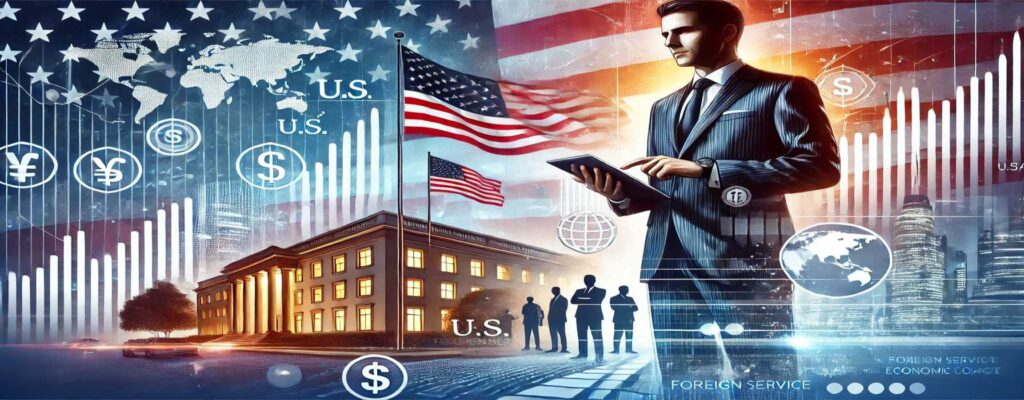How to Become a U.S. Economic Foreign Service Officer (FSO)?
A U.S. Economic Foreign Service Officer (FSO) plays a critical role in shaping international trade policies, negotiating economic agreements, and promoting U.S. financial interests abroad. These officers work in embassies, consulates, and diplomatic missions to analyze global markets, support American businesses, and advise policymakers on economic developments. Their responsibilities include managing trade relations, working with international financial institutions, and ensuring economic stability in partner countries. To become an Economic FSO, candidates must have a strong academic background, pass a rigorous selection process, and demonstrate expertise in economics, finance, and international trade. The journey includes written exams, oral assessments, security clearances, and global assignments.
⏳ 100% surity for getting 85%+ markes
How to Become a U.S Economic Foreign Service Officer (FSO)?

🎓 1. Educational Requirements
- A bachelor’s degree in Economics, Finance, International Business, Political Science, or a related field is typically required.
- A master’s degree in International Economics, Public Policy, or Business Administration can enhance career opportunities.
- Strong analytical and quantitative skills are highly valued for FSO.
✍️ 2. Foreign Service Officer Test (FSOT)
The FSOT is a crucial step in becoming an FSO, assessing candidates on various subjects.
📝 Foreign Service Officer Test (FSOT) Overview In Table

📝 3. Personal Narratives and Qualifications Evaluation Panel
- Candidates submit essays detailing leadership, experience, and problem-solving skills.
- A panel evaluates these responses to determine if the candidate moves forward.
🗣️ 4. Foreign Service Oral Assessment (FSOA)
Candidates who pass the FSOT and QEP move on to the FSOA, a full-day interview process.
📊 Foreign Service Oral Assessment (FSOA) Components
📌 Component 🏛️ Description Structured Interview A formal interview where candidates answer questions about leadership, teamwork, and communication skills. Group Exercise Candidates work together on a simulated diplomatic task to assess collaboration and problem-solving. Case Management Exercise A timed written task where candidates must analyze a scenario and propose solutions.
5. Security and Medical Clearances
- Candidates must pass comprehensive background checks for security clearance.
- A medical examination ensures they are fit for international postings.
6. Final Suitability Review and Hiring
- A suitability panel reviews candidates’ overall qualifications, conduct, and professionalism.
- Those who pass are placed on the FSO hiring register and may receive job offers based on vacancies.
Related Keywords
1️⃣ How to become a U.S. Economic Foreign Service Officer
2️⃣ Foreign Service Officer Test (FSOT) study guide for economic specialization
3️⃣ Best degrees for a career as an Economic FSO
4️⃣ FSOA (Foreign Service Oral Assessment) preparation for economics track
5️⃣ Economic diplomacy jobs at U.S. embassies and consulates
